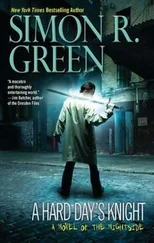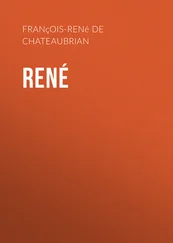“Please.” Catherine smiles.
Others start arriving: producers, researchers, production people. There are hellos, congratulations, general goodwill towards her and her towards them. Even Simon, who breezes in bursting with entitlement, is almost tolerable. Simon is her contemporary — another documentary director — who came from the newsroom so sees himself as a serious heavyweight, but this morning Catherine doesn’t care. It’s the contrast between how she has been feeling and how she feels now. Almost normal.
“Well done, by the way.” Simon winks, giving Catherine’s award the once-over.
She ignores him and opens a new notebook.
“So what next?” he says. Oh chirpy, chirpy, irritating man.
“Someone’s interested in turning my documentary into a feature film,” she lies and enjoys seeing him struggle to keep the smile on his face. “That’s great,” he says.
“Isn’t it,” she replies, her eyes locking on his.
“Well, if you want to talk about it, just let me know — I’ve had a bit of experience with some of those film guys,” he smirks.
“Oh I will, Simon,” and she gives him a wink then turns her back and picks up a pen, drumming it on her notebook. A list, that’s what she needs to do. A list is always a useful starting point.
The book: The Perfect Stranger .
The author: Friend of… Relative of… Witness of…?
Catherine stabs at her list with the pen and remembers when she met Nancy Brigstocke. It was 1998. It had been just the two of them and they’d met only once. It had been Nancy who had got in touch with Catherine. She remembers the stab of guilt she’d felt when she received her letter, knowing that Nancy may have been waiting for Catherine to get in touch. It would have been easy for her to track Nancy down, but it couldn’t have been that hard for Nancy to find her. Who would have the heart to refuse passing on her details? The letter was written in fountain pen, blue-black ink. She can still see the slant of the script, the loop of the capital letters at the beginning of each sentence. The note had left its mark. Catherine had felt compelled to meet her — knew that, really, she should have been the one to initiate it.
It had been a Friday afternoon in October. The sky was white, the air was muggy. Muggy in October? It couldn’t have been muggy in October, but that was how it had felt to Catherine. Suffocating. She remembers taking her hat off and stuffing it into her pocket. She’d put it on when she left work, thinking it would be cold, but instead she’d felt hot. The heat had built up in her head until it felt as if her brain was being slowly cooked, turning her thoughts into a mushy stew. She’d pulled off her hat and undone her coat. Nancy Brigstocke had kept her coat buttoned up. It swamped her. She was a tiny woman. She wore gloves, but no hat. Catherine remembers looking down and seeing the pink of her scalp through her thin white hair. She would have been not quite sixty then, but looked older. She had cancer. That’s what she had written in her note, and she had looked like a woman losing a battle. She’d told Catherine that she had lost her husband recently — another reason Catherine had agreed to meet her. But perhaps Nancy Brigstocke hadn’t died? Perhaps she was alive and living with cancer. She adds her name to the list, and the word “alive” with a question mark.
Their meeting had been strained. There was so much Catherine had wanted to say but couldn’t so she had let Nancy speak. She had heard the hunger in her voice — probing, trying to nudge Catherine into opening up, but she wouldn’t. She couldn’t. “There is nothing I can say that will help you,” she’d said. And then Nancy had asked to meet Nicholas and Catherine had had to say no. She’d tried to make her refusal gentle, but she couldn’t allow it. He was too young. Catherine had taken the frail woman’s hand and she is sure she had felt death in it even then, while she was still alive. She had seen it in her eyes too, as they looked up at Catherine, and Catherine had turned away, unable to face it. She said good-bye and walked away and she had kept walking, not looking back. She didn’t want Nancy to see that she was crying. She didn’t want her to misunderstand her tears. She was crying for all the things she hadn’t said and for this tiny woman, shrunken inside her smart herringbone tweed coat. Her leather gloves. Her thin, combed hair, her comfortable shoes. The effort she had made with her appearance was heartbreaking. The effort she’d made to appear stronger than she was. But perhaps Catherine had underestimated her strength and she had triumphed over death and was now marching on Catherine too. Perhaps it hadn’t been death at all in her eyes, but something else, something equally cold. Was Nancy Brigstocke capable of producing the poison in the book?
“Anything you need doing?” Kim is looking over her shoulder. Catherine shuts her notebook.
“Not really. I’ve scribbled down a few thoughts, but why don’t you come up with a list of possible stories and we’ll go over them in the morning.” Kim agrees. Kim would do anything for her. Catherine is her chance for advancement — the only one who gives her the opportunity to be more than just an efficient assistant.
“Actually, I did have a few ideas while you were away. I’ll bash them out. See what you think.”
“Great.” Catherine smiles. That’s what she loves about Kim. She is motivated, proactive. She doesn’t need to be asked twice, not by Catherine. She wonders what Kim would think if she read The Perfect Stranger.
Catherine leaves work early. She knows she kept that note. There are a couple of boxes still in her bedroom full of things she doesn’t know what to do with. She remembers putting the note in a folder along with miscellaneous photographs and letters from her mother and old friends. When they’d packed up to move from the old house, she’d thought about throwing it out, but had decided to keep it. Her hand grazes the faded pink of the file and pulls it out. She flicks through and yes, there it is. Pale blue notepaper and blue-black ink. And there is an address in the top right-hand corner. No phone number, just an address. The chances of her still being alive and living at the same address are slim, but it’s worth a try. Her heart races, a shot of adrenaline, but the right kind: fight not flight. Face-to-face, that’s how Catherine prefers things. Whose face she will confront is uncertain, but someone must answer for what she’s being put through. She checks her watch: 4:00. Time to get there and back before Robert comes home.
Catherine makes her way up the last flight of stairs and tries to imagine how a woman dying of cancer could have managed them. And if Nancy Brigstocke is alive, how would she manage them now she is in her seventies? She punches the light on the last landing, but it doesn’t work. She tries again. Nothing. Someone has neglected to change the bulb. And someone has neglected to water the plant in the pot by the front door. Dead, dried-out and brittle. A mean pinch of light comes through a small, dirty window in the roof, just enough for her to see the numbers on the two front doors. She stands in front of Nancy Brigstocke’s last known address and presses the bell, but there’s no sound. She knocks, two sharp raps with bare knuckles, and hitching her bag over her shoulder, waits. Nothing. No one there. She crouches down and peers through the letter box. Green carpet, legs of dark wood furniture, no movement.
She sits on the top stair and opens her bag, burrowing inside for her pad and pen. She must word her note with care. “Dear Mrs. Brigstocke,” she begins. She mustn’t be aggressive or defensive. She mustn’t seem angry. She thinks she succeeds in being persuasive and fair. She tears her note from the pad, folds it in half, and pushes it through the door. This is mad. The chances of Nancy Brigstocke still being alive and finding her note are less than slim. She rests her head on the door for a moment, and is aware of someone standing behind her. She can hear their laboured breathing from the effort of climbing the stairs. She turns round. A woman, long, white hair, is watching her, bags of shopping hanging from her arms, her breath coming in short gasps.
Читать дальше












